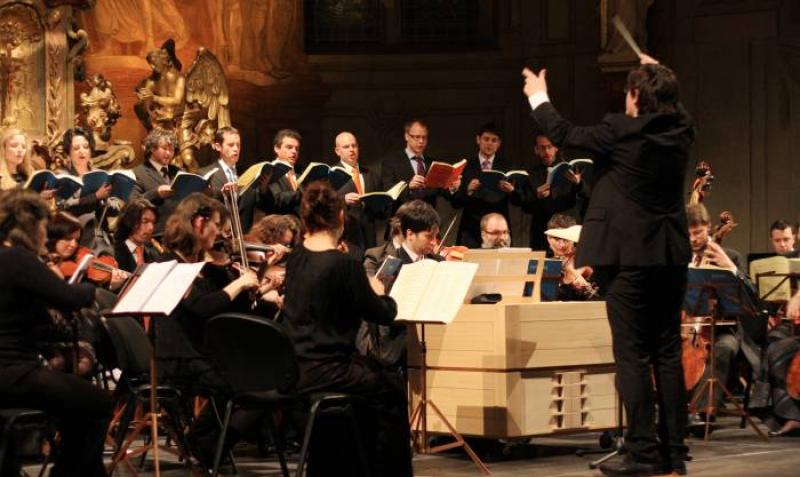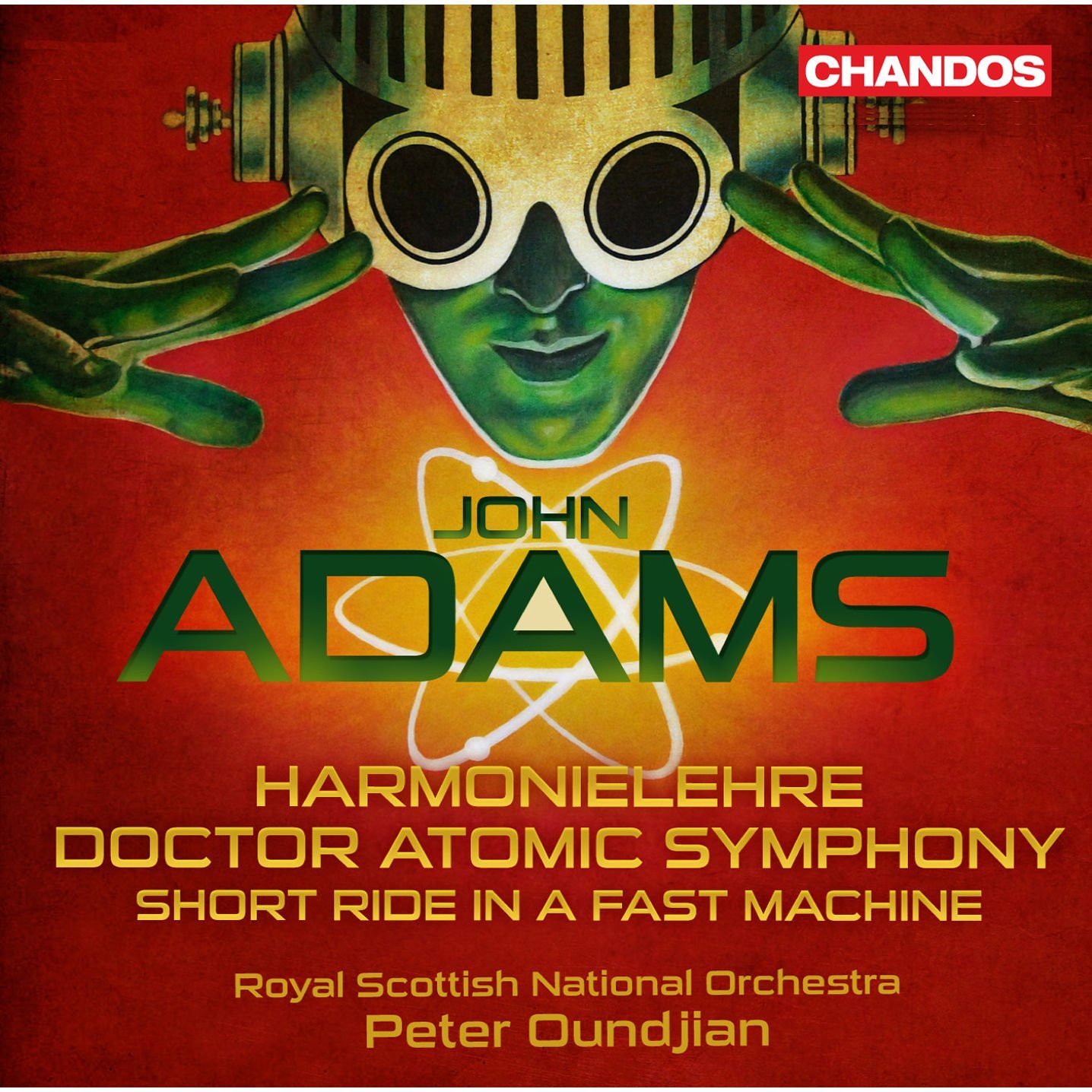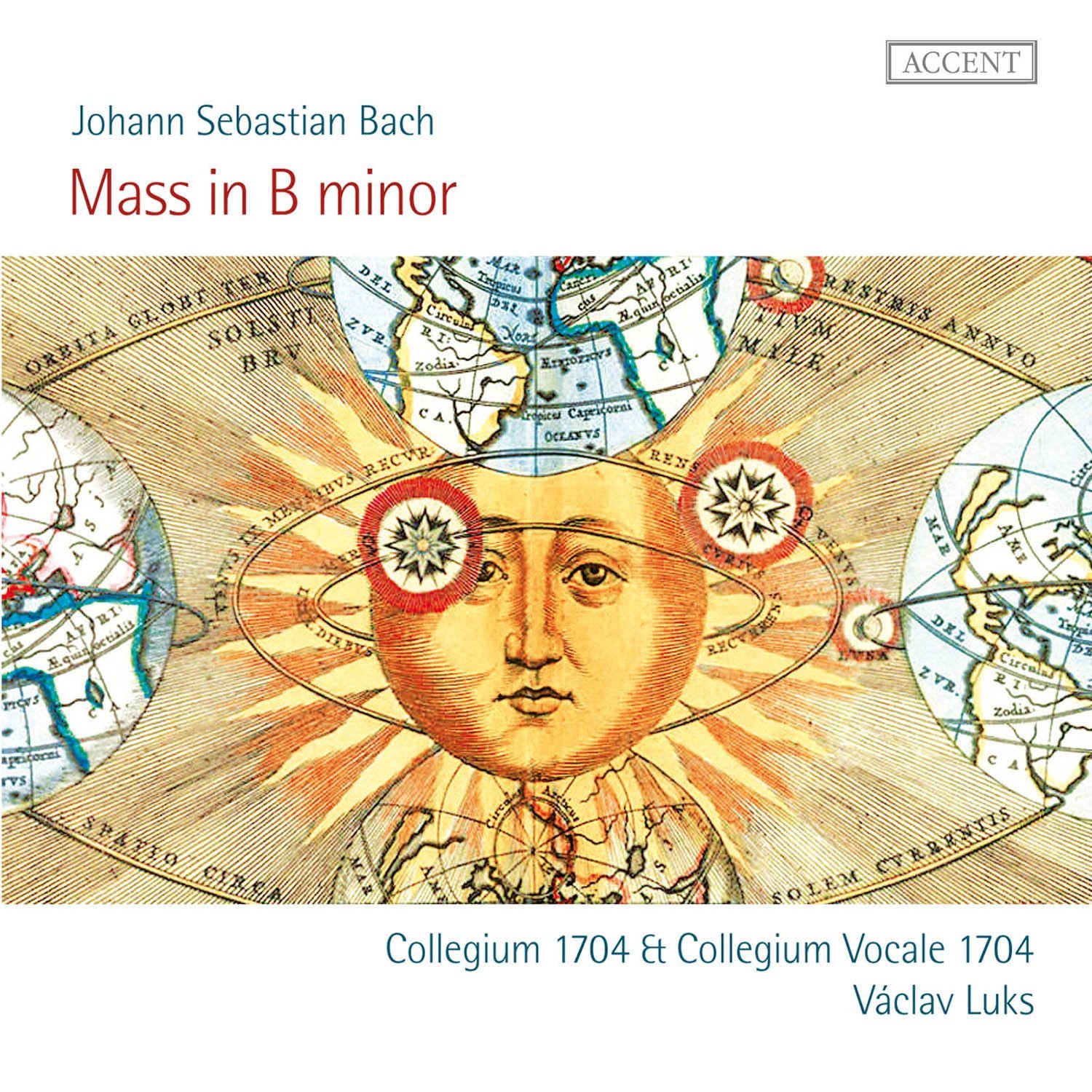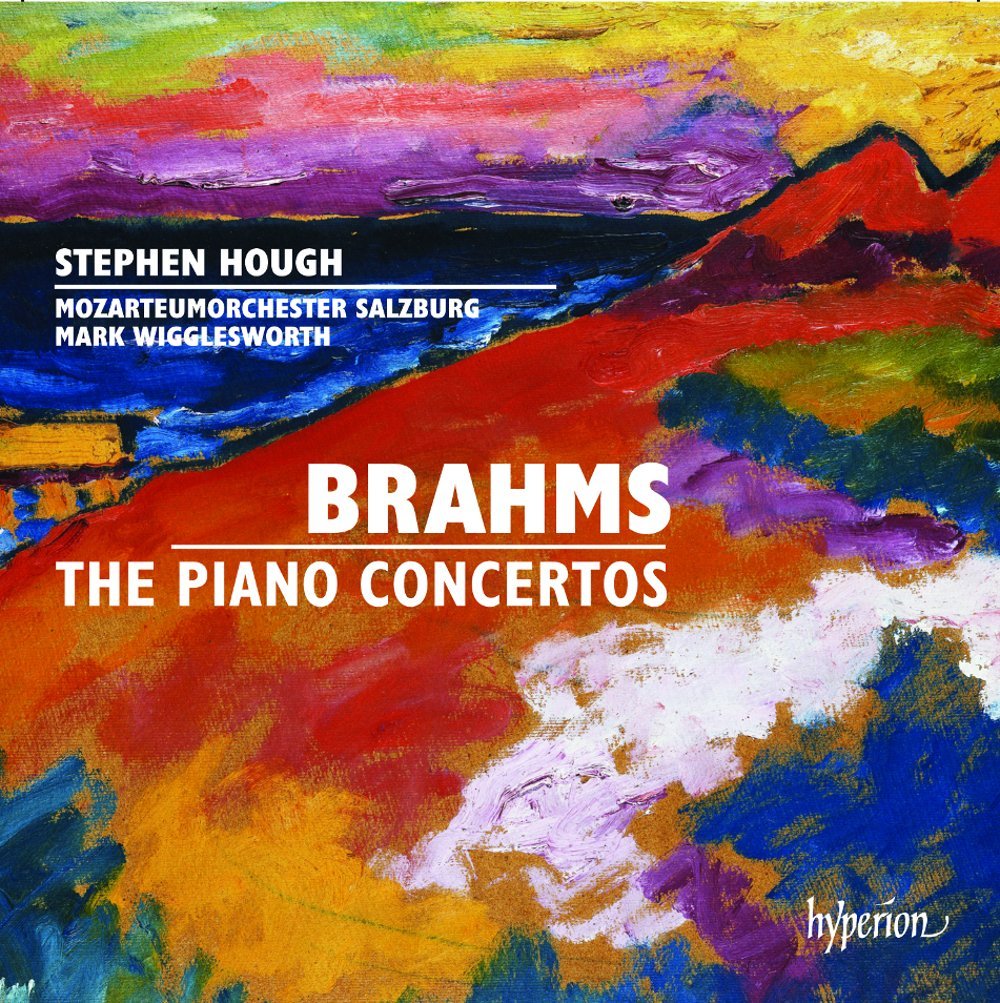Classical CDs Weekly: Adams, Bach, Brahms | reviews, news & interviews
Classical CDs Weekly: Adams, Bach, Brahms
Classical CDs Weekly: Adams, Bach, Brahms
Contemporary orchestral fireworks, a Baroque choral blockbuster and a pair of weighty piano concertos


Harmonielehre's opening E minor chords ring out with unusual force in this swiftly-paced performance. The benchmark performance remains Michael Tilson Thomas's recent live San Francisco Symphony version, but this new one has some sensational moments. The RSNO's brass and percussion acquit themselves brilliantly, and Chandos's sound is punchy and immediate. Peter Oundjian understands the work's structure, allowing the repetitive ostinati to register as music rather than doodles. There's a magical example of this about five minutes in, just before Adams's sublime wordless aria on horn and strings enters. Harmonielehre has so much to interest the open-minded – the smart musical references to Mahler, Ravel, Sibelius and Schoenberg, the glittering orchestral palette. More importantly, it's audible proof that it's still possible to write intelligent, engaging tonal orchestral music on a large scale. Adams's abrupt close, simultaneously unexpected and totally deserved, remains a stunner.
The Doctor Atomic Symphony is a free-standing spinoff from Adams's 2005 Manhattan Project opera. Abrasive and compact, it's a chilly, though fascinating work. And evidence that Adams's music, unlike that of some minimalists, continues to evolve. The gestures are more abrupt, the harmonies are bolder, but this couldn't have been written by anyone else. Huw Morgan's extended trumpet solos are beautifully played, and the savage, nihilistic coda wholly befits the opera's subject matter. As a bonus, there's the effervescent Short Ride in a Fast Machine. I could have done without the over-prominent woodblock, but the four minutes pass in a flash. Quirky sleeve art too.
 Bach: Mass in B Minor Collegium 1704, Collegium Vocale 1704/Václav Luks (Accent)
Bach: Mass in B Minor Collegium 1704, Collegium Vocale 1704/Václav Luks (Accent)Bach's Mass in B Minor is such a vast, all-encompassing work that acquiring recordings of it can become an obsession. Does one opt for the lean, single-voice per part option adopted by the likes of Andrew Parrott? Or weighty inauthenticity (see Karajan or Klemperer)? If you find John Eliot Gardiner a bit too hard-driven, Václav Luks's set, recorded in Prague, will hit the spot. This is a wonderful, beautifully-presented set which succeeds on every level. Luks's small choir possess the knack of producing exactly the right sonority for each movement. There's ample heft when you need it, but also an enchanting grace, an ease of movement. Listen to them dancing in Bach's Gloria and marvel at the clarity. The opening Kyrie Eleison possesses all the grandeur you'll need. Much of this recording's success lies in Luks's ability to always choose the right tempi. Fast speeds become a liability if texts become a meaningless gabble and instrumentalists can't articulate. Equally, go too slowly and the performers run out of breath.
Luks's Cum Sancto Spiritu is among the most joyous you'll hear, aided by a trio of matchless natural trumpets. Bach's more austere movements unwind with clarity and purpose. The short Crucifixus gleams with intent. The Sanctus's bouncing, descending bass line is buoyant. And it's all presented on a very human, approachable scale. Good soloists too, especially soprano Hana Blažíková and bass Marián Krejčík. You'll marvel at Bach's genius instead of feeling intimated by it. This work should be known, and loved, by everyone, and I can't imagine a better introduction to it than this.
 Brahms: The Piano Concertos Stephen Hough, Mozarteumorchester Salzburg/Mark Wigglesworth (Hyperion)
Brahms: The Piano Concertos Stephen Hough, Mozarteumorchester Salzburg/Mark Wigglesworth (Hyperion)Hyperion's sound here is brilliantly immediate, and the gruff tutti which opens Brahms's D minor concerto is startling. Such an unusual start for a concerto – the music brooding, seething with fury. You wonder if the pianist will get a look in. Mark Wigglesworth's Mozarteumorchester Salzburg produce a lean, wiry sound – far less refulgent than we're used to. And it works, making Stephen Hough's first entry all the more unexpected – the first solo not a million miles from genteel salon music. Hough can be a mercurial pianist, able to project with the lightest of touches, but Brahms's more daunting writing carries satisfying weight here. Wigglesworth and Hough manage to avoid any sense of stodginess - the 6/4 metre flows very nicely indeed, the waltz rhythms offering a welcome touch of light relief. Hough makes Brahms's Adagio sing with unforced eloquence, but the best thing here is the final Rondo. The coda's shift to D major is one of music's most uplifting moments, and it's marvellous in these hands, Hough's bass lines ringing out with percussive brilliance.
Brahms's Concerto no 2, though a more mature, confident work, just doesn't seem as much fun – the Allegro non troppo's 4/4 plod a little too stately and self-satisfied. Brahms joked that the movement was "harmless", providing vivid contrast in the form of a dark, minor-key scherzo. Hough catches the lilt as well as the melancholy. Marcus Pouget's cello solo in the extended Andante offers additional pleasures, but not even Hough's genius can prevent the Allegro grazioso from sounding slightly inconsequential – an oddly unsatisfying conclusion to such a weighty piece. I'm nitpicking – these are very good performances, well-recorded and reasonably priced. Good notes, too.
Explore topics
Share this article
The future of Arts Journalism
You can stop theartsdesk.com closing!
We urgently need financing to survive. Our fundraising drive has thus far raised £49,000 but we need to reach £100,000 or we will be forced to close. Please contribute here: https://gofund.me/c3f6033d
And if you can forward this information to anyone who might assist, we’d be grateful.

Subscribe to theartsdesk.com
Thank you for continuing to read our work on theartsdesk.com. For unlimited access to every article in its entirety, including our archive of more than 15,000 pieces, we're asking for £5 per month or £40 per year. We feel it's a very good deal, and hope you do too.
To take a subscription now simply click here.
And if you're looking for that extra gift for a friend or family member, why not treat them to a theartsdesk.com gift subscription?
more Classical music
 Hallé John Adams festival, Bridgewater Hall / RNCM, Manchester review - standing ovations for today's music
From 1980 to 2025 with the West Coast’s pied piper and his eager following
Hallé John Adams festival, Bridgewater Hall / RNCM, Manchester review - standing ovations for today's music
From 1980 to 2025 with the West Coast’s pied piper and his eager following
 Kaploukhii, Greenwich Chamber Orchestra, Cutts, St James's Piccadilly review - promising young pianist
A robust and assertive Beethoven concerto suggests a player to follow
Kaploukhii, Greenwich Chamber Orchestra, Cutts, St James's Piccadilly review - promising young pianist
A robust and assertive Beethoven concerto suggests a player to follow
 Robin Holloway: Music's Odyssey review - lessons in composition
Broad and idiosyncratic survey of classical music is insightful but slightly indigestible
Robin Holloway: Music's Odyssey review - lessons in composition
Broad and idiosyncratic survey of classical music is insightful but slightly indigestible
 Classical CDs: Wolf-pelts, clowns and social realism
British ballet scores, 19th century cello works and contemporary piano etudes
Classical CDs: Wolf-pelts, clowns and social realism
British ballet scores, 19th century cello works and contemporary piano etudes
 Bizet in 150th anniversary year: rich and rare French offerings from Palazzetto Bru Zane
Specialists in French romantic music unveil a treasure trove both live and on disc
Bizet in 150th anniversary year: rich and rare French offerings from Palazzetto Bru Zane
Specialists in French romantic music unveil a treasure trove both live and on disc
 Scottish Chamber Orchestra, Ibragimova, Queen’s Hall, Edinburgh review - rarities, novelties and drumrolls
A pity the SCO didn't pick a better showcase for a shining guest artist
Scottish Chamber Orchestra, Ibragimova, Queen’s Hall, Edinburgh review - rarities, novelties and drumrolls
A pity the SCO didn't pick a better showcase for a shining guest artist
 Kilsby, Parkes, Sinfonia of London, Wilson, Barbican review - string things zing and sing in expert hands
British masterpieces for strings plus other-worldly tenor and horn - and a muscular rarity
Kilsby, Parkes, Sinfonia of London, Wilson, Barbican review - string things zing and sing in expert hands
British masterpieces for strings plus other-worldly tenor and horn - and a muscular rarity
 From Historical to Hip-Hop, Classically Black Music Festival, Kings Place review - a cluster of impressive stars for the future
From quasi-Mozartian elegance to the gritty humour of a kitchen inspection
From Historical to Hip-Hop, Classically Black Music Festival, Kings Place review - a cluster of impressive stars for the future
From quasi-Mozartian elegance to the gritty humour of a kitchen inspection
 Shibe, LSO, Adès, Barbican review - gaudy and glorious new music alongside serene Sibelius
Adès’s passion makes persuasive case for the music he loves, both new and old
Shibe, LSO, Adès, Barbican review - gaudy and glorious new music alongside serene Sibelius
Adès’s passion makes persuasive case for the music he loves, both new and old
 Anja Mittermüller, Richard Fu, Wigmore Hall review - a glorious hall debut
The Austrian mezzo shines - at the age of 22
Anja Mittermüller, Richard Fu, Wigmore Hall review - a glorious hall debut
The Austrian mezzo shines - at the age of 22
 First Person: clarinettist Oliver Pashley on the new horizons of The Hermes Experiment's latest album
Compositions by members of this unusual quartet feature for the first time
First Person: clarinettist Oliver Pashley on the new horizons of The Hermes Experiment's latest album
Compositions by members of this unusual quartet feature for the first time

Add comment